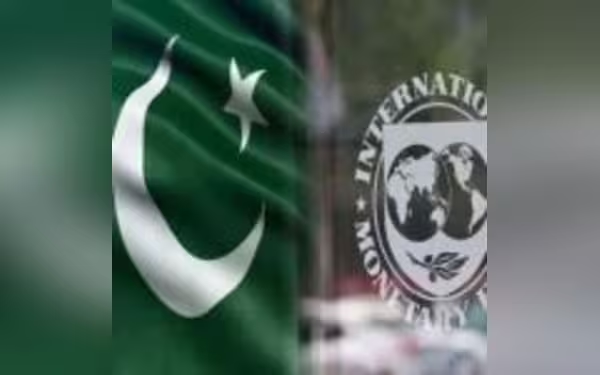Thursday, July 4, 2024 05:59 PM
IMF Concerned Over AJK Subsidized Power Tariffs
- Disparity in power tariffs between AJK and rest of Pakistan
- Experts emphasize need for detailed briefing to IMF
- Calls for uniform tariff system nationwide to ensure fair treatment
 Image Credits: pakobserver
Image Credits: pakobserverThe recent announcement of subsidized power tariffs in AJK has sparked discussions among economists and policymakers. Concerns over tariff disparities, fiscal stability, and circular debt management are being addressed through measures like a relief package and calls for a uniform tariff system nationwide.
The recent announcement by the Prime Minister regarding subsidized power tariffs for residents of Azad Jammu and Kashmir (AJK) has sparked discussions among economists and policymakers. The disparity in tariff rates between AJK and the rest of the country has caught the attention of the International Monetary Fund (IMF).
Currently, residents in AJK benefit from lower power tariffs ranging from Rs3 to Rs6 per unit, while in other parts of the country, rates vary from Rs6.72 to Rs35.26. This difference has raised concerns about the implications it may have on managing circular debt and overall fiscal stability.
To address these concerns, experts are emphasizing the need for a detailed briefing to the IMF. The Finance Minister's plan to reduce the fiscal deficit by 1.5 percent through measures like implementing a petroleum levy, aiming to generate Rs1.1 trillion in revenue, has been highlighted as a crucial step.
The recent relief package of Rs23 billion for AJK, announced by the Prime Minister, is seen as a positive move towards resolving longstanding issues, particularly regarding overdue water usage payments. This package, feasible within the federal budget, is expected to alleviate some of the financial burdens faced by residents in AJK.
Despite calls for a uniform tariff system nationwide, particularly from Punjab, concerns about potential political bias remain. Suggestions have been made for a standardized tariff system across the country to ensure fair treatment for all regions. The contributions of projects like the Neelum-Jhelum Hydropower Project to the national grid have strengthened AJK's case for equitable tariff rates.
The discussions surrounding subsidized power tariffs in AJK highlight the complexities of managing energy pricing across different regions. As policymakers work towards addressing these disparities, the need for transparency and equity in tariff structures becomes increasingly important. By considering the implications on fiscal stability and circular debt management, efforts to create a more uniform tariff system nationwide could lead to a fairer and more sustainable energy pricing framework for all Pakistanis.













